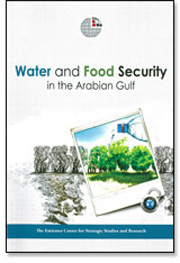Book contents
- Frontmatter
- Contents
- Figures and Tables
- Abbreviations and Acronyms
- Foreword
- Introduction
- Keynote Addresses
- Water Security in a Changing World
- Water Security in the Arabian Gulf Region
- Water Resource Management in the Arabian Gulf Region
- 5 National and Regional Water Security Policies in the Gulf States
- 6 Future Water Supply and Demand in the Gulf States
- Regional and International Food Security
- Water and Food Security in the UAE
- Contributors
- Notes
- Bibliography
- Index
5 - National and Regional Water Security Policies in the Gulf States
from Water Resource Management in the Arabian Gulf Region
Published online by Cambridge University Press: 05 September 2014
- Frontmatter
- Contents
- Figures and Tables
- Abbreviations and Acronyms
- Foreword
- Introduction
- Keynote Addresses
- Water Security in a Changing World
- Water Security in the Arabian Gulf Region
- Water Resource Management in the Arabian Gulf Region
- 5 National and Regional Water Security Policies in the Gulf States
- 6 Future Water Supply and Demand in the Gulf States
- Regional and International Food Security
- Water and Food Security in the UAE
- Contributors
- Notes
- Bibliography
- Index
Summary
The issue of water resources has acquired increasing importance during the course of the twenty-first century, with talk of impending water crises – particularly in light of the changes occurring in the Earth's climate – that represent major environmental threats to human security.
Water is essential for survival and economic progress. Fresh water availability is a significant concern in many places around the world, particularly with a global population that grows by a quarter of a million people daily. As a result, the share of water supply per capita on the planet fell from 33,300 cubic meters (m3) per year in 1850 to 8,500 m3 per year in 1993. Roughly 40 percent of the world's population – mostly situated in developing countries – already faces severe water shortages, and ever more countries will join this list. It is conceivable that by the middle of next century about 65 percent of the world will face water stress or scarcity.
Contemporary analyses of fresh water crises show that demand for water during the twentieth century increased ten-fold; meanwhile, the world's population has quadrupled over the past hundred years. With increasing wealth, demand for water resources has increased. Global fresh water resources per capita will continue to fall if the current rates of increasing consumption endure—by 2025, there will be more than 3 billion people living in water stressed countries.
- Type
- Chapter
- Information
- Water and Food Security in the Arabian Gulf , pp. 103 - 134Publisher: Emirates Center for Strategic Studies and ResearchPrint publication year: 2013



